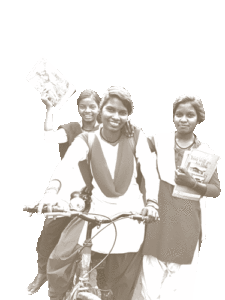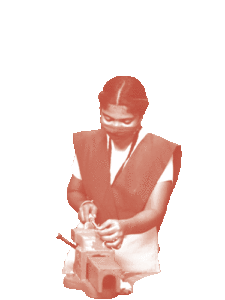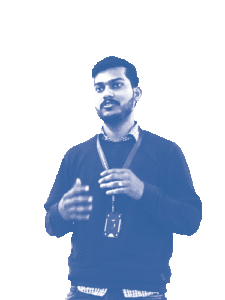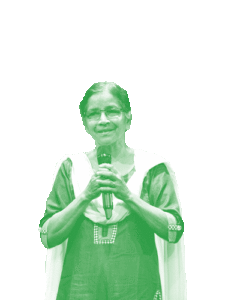Schools
The Schools program enhances educator capacities for 21st-century skills, enabling learners to build STEM mindsets, gender sensitivity, social-emotional learning, coding, computational thinking, and career pathways. Strategic partnerships drive our initiatives across 9 states.

students impacted

144 Model Schools have undergone teacher-led processes like school visioning, setting up of STEM clubs, and designing club sessions and learning days for students.
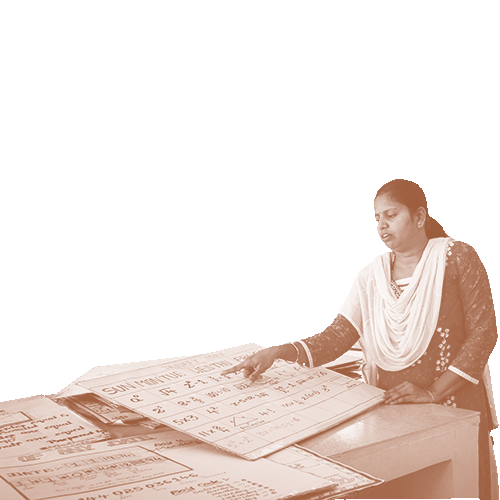
Schools, including 156 model schools

Across 8 states, 22% of the teachers successfully completed 80% of the course to become 21st century educators.
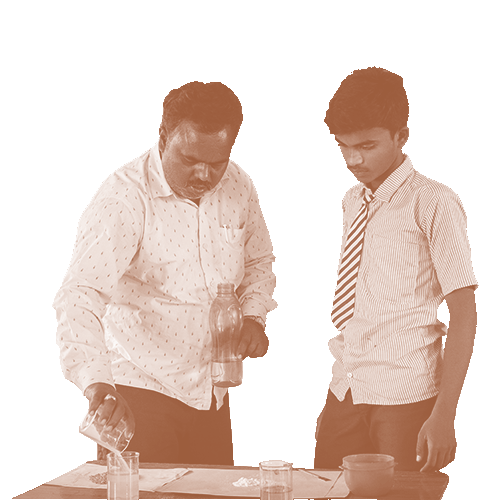
teachers trained as 21st century educators

Of the students who accessed tele-counselling, 91% of them claimed they attained clarity on their career pathway.
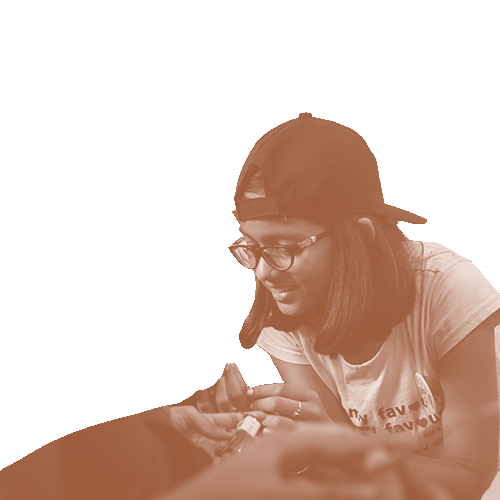
students participated in the ideathon and hackathon process across 6 states.
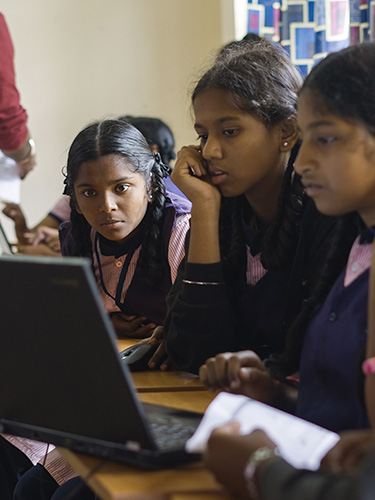
60 vital scholarships provided to learners, in addition to career information and admission notifications.
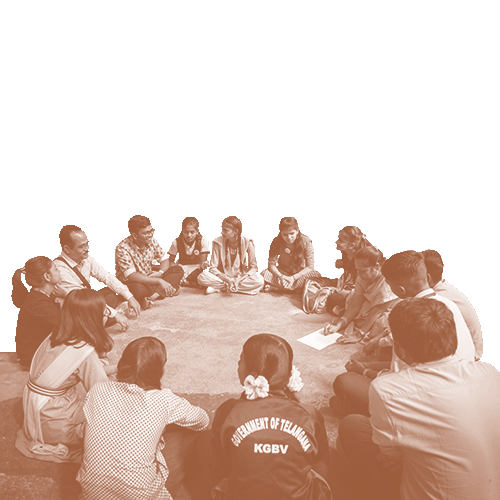
Students and teachers participated in the interstate hackathon
Hack to the Future: An Inter-State Hackathon
The first-ever national hackathon, The Hack to The Future: The Green Edition broght over 80 students and teachers from 10 states to explore future technologies and devise innovative solutions for community challenges. These included crop reduction, human-wildlife conflict, weather changes, and more. The event fostered cultural diversity, providing a unique platform for students and teachers to interact with peers from across the country. Supported by 32 organizations and 23 mentors, students were guided to articulate their problems, ideas, and designs. The event also garnered extensive local media coverage, earning recognition from local government officials in participating states. Notably, students from Andhra Pradesh were invited by the Commissioner of School Education and SCERT to present their prototypes at a state-level science exhibition. There were significant shifts observed in teaching and learning methodologies among both teachers and students. [See more]
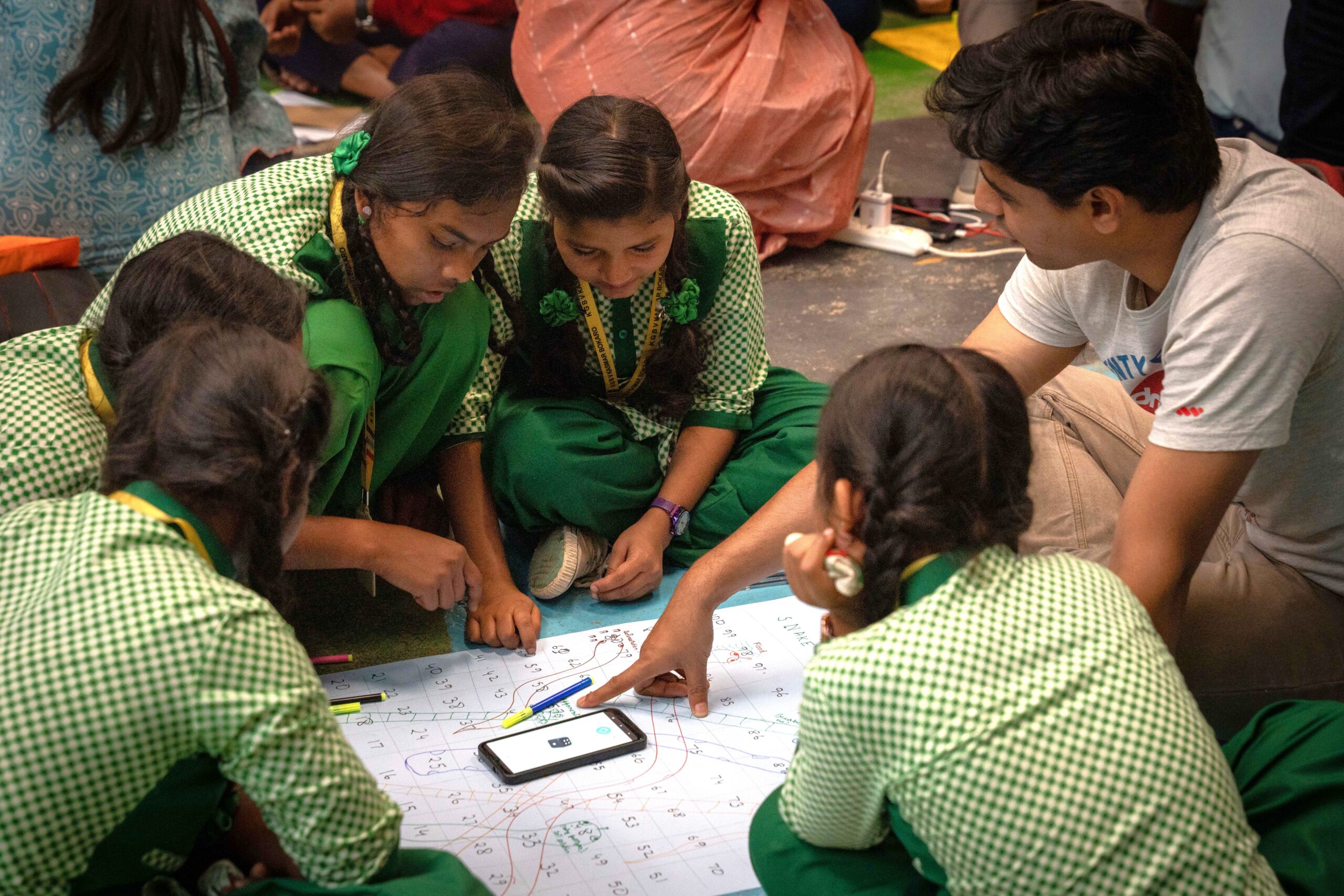
Strengthening Partnerships with the Government
We secured a significant three-year MoU with Gujarat's Samagra Shiksha Abhiyaan. This partnership aims to establish a scalable, gender-sensitive, 21st-century-ready education model, benefiting 3 million students in grades 6-10 across 20,000 schools in Gujarat.
In Odisha, the Department of School and Mass Education invited us and two other civil society organizations to develop a Computational Thinking and Coding Curriculum for govt. high schools. Starting August 2023, this 30-hour curriculum will be rolled out to 1 million govt. high school students in classes 9 and 10.
Conversations with key stakeholders in Telangana, including the Women Entrepreneurship Hub (We HUB) and the Telangana State Innovation Cell (T-SIC), have opened doors for potential scaling opportunities in STEM education. T-Works, India's largest prototyping center, is incorporating our insights into a Maker kit for government schools across Telangana.
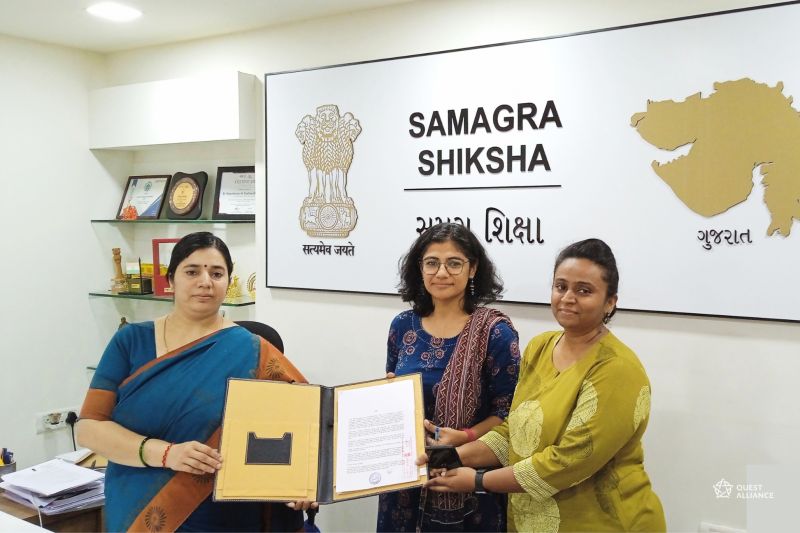
We have signed a three-year MoU with Gujarat’s Samagra Shiksha Abhiyaan to empower 3,000,000 class 6-10 students from 20,000 schools across Gujarat with skills to cultivate STEM mindsets and pursue STEM fields.
Improving Scalability and Sustainability of Interventions Through Knowledge Partnerships and Consortiums
Under Project Sampoorna, we're taking Social-Emotional Learning (SEL) to 180 schools, including 80 Schools of Excellence in Jharkhand. At the state level, we launched the Harsh Johar curriculum, reaching 25,000 students through 121 SEL teachers.
The Govt. of Karnataka has brought together a consortium of 12 organizations for the Karnataka Model School Pathway Programme (KMSPP). As a Knowledge partner, Quest Alliance will collaborate with teachers and school leaders to create inclusive 21st-century classrooms in 105 schools in the state.
As part of the Scratch Education Collaborative, we concluded a successful two-year journey with the Scratch Foundation. We are now leveraging learning from this to create the Indian Equitable Learning Ecosystem – a network of 10 local organizations across India – helping learners from marginalized communities learn coding and computational thinking.
In-depth Intervention through STEM Clubs in Schools
The Model School Approach aims to revolutionize school cultures, promoting STEM mindset, gender equity, and well-being. Through STEM Clubs led by teachers or STEM educators, supported by school coaches, students embark on an immersive journey.
In 2022, our inaugural year, we collaborated with 156 model schools. Among them, 143 schools underwent teacher-led processes including school visioning exercises, STEM club activities, project-based problem-solving, ideathons, hackathons, and learning days for students.
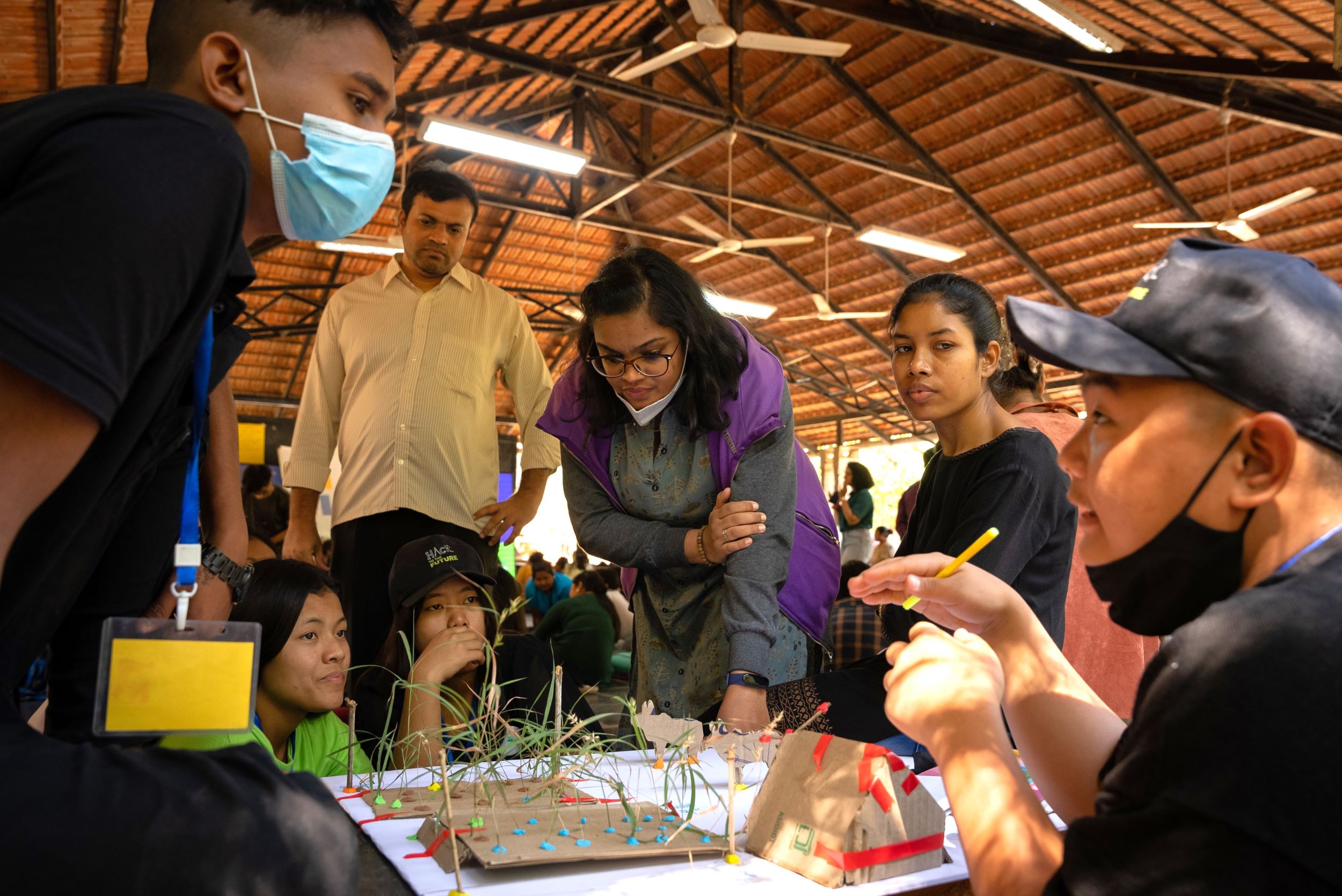
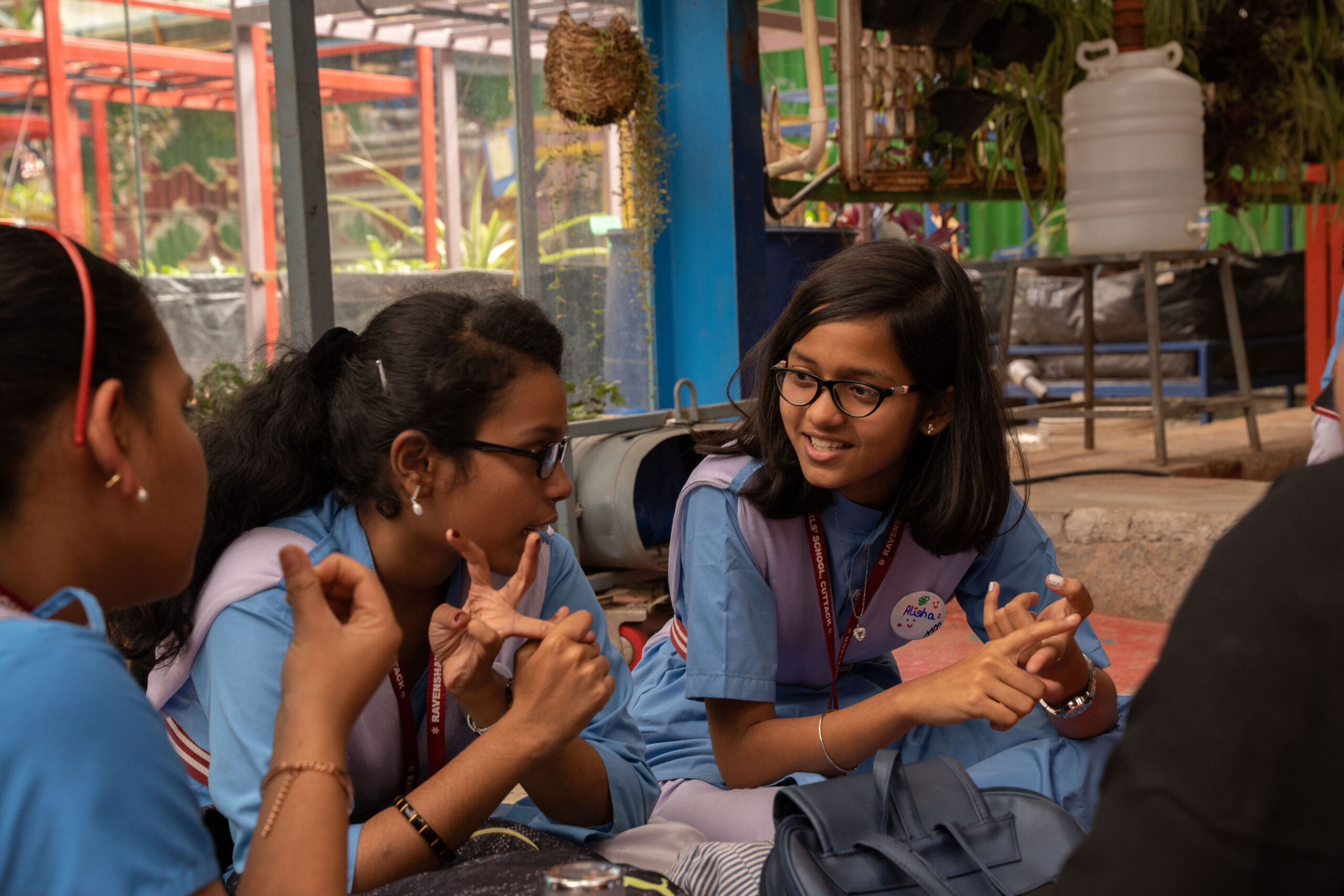
The Model School Approach encourages learners to understand themselves, have gender awareness, apply scientific thinking to solve local problems, examining their surroundings and explore careers.
“Collaborating with Quest Alliance, we will learn to engage with our students, making them future-ready. All the development in school, from ensuring access to all students to facilitating teaching and learning processes is in line with the changing world. By quickly adapting to the technology, the teachers are making all these initiatives possible.”
- Smt. Susmita Bagchi
Chairperson, Mo School Abhiyan - Govt. of Odisha
